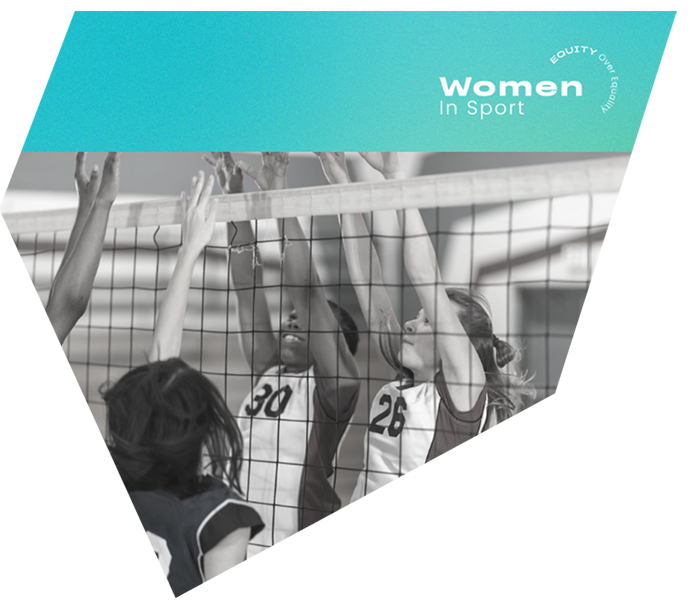
-
What We Do
-
How We Think
-
Our People
-
Our Offices
-
About Us
-
Get In Touch

In 2019, Suncorp released their Youth & Confidence Research which showed that 50% of Australian teenage girls dropped out of sport by 17. This is a phenomenon that is also reported in Ireland, the United Kingdom and Canada. The concern is that not only does this diminish the talent pool for players of organised sport, but also future coaches, managers, referees and officials who help organise sport from grassroots up to elite levels.
In my own experience, I had also noticed a similar problem. As I got to the end of my time in junior basketball, I noticed how the numbers at trials were diminishing each year, and trials slowly became more of a sign up to play situation. My friends were fizzling out of sport, and I realised at 23 I was one of the oldest women on my open age basketball team. This led me to wonder, where are all the women going?
After some initial research, I found the barriers to young women playing sport across Australia, the United Kingdom, Ireland, and Canada were very similar and had nothing to do with the sport itself.
Those barriers are:
Lack of self-esteem
Perceived lack of skill
Lack of confidence
Negative Body Image
Poor perceptions of belonging
Fear of being judged
Sport causing more mental stress than it relieves
I found it interesting that none of these barriers have anything to do with the game itself but everything that surrounds the sport, indicating that the real problem seems to lie in culture. Considering most of the barriers can be summarised to some degree as a lack of confidence, something is happening in sport during our teenage years that is impacting young women’s confidence and affecting their relationship with organised sport.
During our adolescence, we are in one of the most vulnerable periods of our life. Everything is changing, and we are trying to figure out who we are and how people perceive us when the slightest comment from a parent, coach or official can impact us for the rest of our lives. These comments can lead to dangerous mental illnesses like depression, anxiety, and eating disorders. These illnesses do not just affect our enjoyment of sport but can completely disrupt young lives entirely. Those comments can come from unnecessary pressures key influencers place on young women in organised sport when the focus should be on having fun, competing, and making friends. These comments can skew our confidence in ourselves and our abilities and impact our healthy relationship with our bodies. While young women don’t need to be wrapped in cotton wool, an understanding that we have different needs and should be supported in a way that is different to men in sport is needed.
The word equality is used a lot, but women in sport need equity. While equality is about giving everyone the same support and opportunities hoping they will succeed, equity is tailoring the support to ensure everyone is successful.
I recently read a quote from an NCAA coach and it has stuck with me since I read it. He had coached young men and women at a collegiate level for over 20 years, and he said:
‘The difference between male and female athletes is that men gain confidence through performance but women need pre-existing confidence to perform.’
This statement resonated with me after my own experiences as a player and coach in women’s community sport and high-performance programs. It perfectly captured how I had felt as a player and what I could see the players I coached experiencing. For me, this seems to be one of the main differences between men and women in sport and a place for further research and understanding. The progression of gender equity in sport may need to be centred around the theme of confidence and how we can build women’s confidence in sport. This might be the start of the next chapter in the women’s sport journey.
While there have been many government and non-government efforts made to raise levels of participation in women’s sport, and in the professionalisation of women’s sport, a focus on culture and creating cultural change to better support women’s participation could be what is missing. While equal opportunities have advanced women’s sport and participation so far, equitable opportunities are potentially what is needed for future success.
Women’s sport has come a long way, and the explosive growth of AFLW is an excellent example of that, but it still has a long way to go. I feel we have only scratched the surface on looking at improving women’s participation from a cultural lense and how equity in sport can improve women’s participation rates.
At creativeXpeople, we are invested in Women’s sport. We want to form a deep understanding of past and present participation issues to devise practical ways we can help to support women’s participation in sport at all levels. We have created a survey to form a holistic understanding of:
Why women of all ages drop out of organised sport and their relationship with organised sport throughout their lives
Women’s experience with organised sport (both good and bad)
How women can be better supported through equitable opportunities and resources
Potential reasons women have difficulty participating in sport due to cultural factors
Please complete the survey below if you are currently participating or previously participated in women’s sport in any capacity (i.e. player, parent, referee, coach or administrator) and at any level. We are also very interested in the experiences of men and non-binary people who participate in women’s sport. We encourage you to complete the survey and include your opinions, experiences and perceptions of women’s organised sport.
After raising the idea of investigating this problem, it was decided that we would pursue this research project because we are passionate about supporting women in sport, local sporting communities and contributing towards Brisbane 2032.
Contact us at synergy@synergygroup.net.au for more information.

